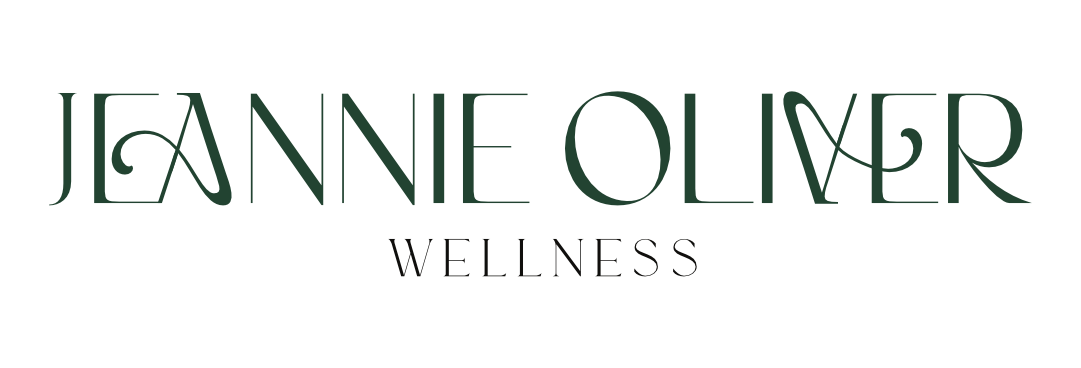Brain Boosting Healthy Fats and Herbs
Protecting Brain Health with Essential Fatty Acids (EFAs)
The omega-3 fatty acids, eicosapentaenoic acid (EPA) and docosahexaenoic acid (DHA) are classified as "essential" nutrients for the human because they cannot be made by the body. Hence the term, Essential Fatty Acids (EFAs). Since the body cannot make EFAs, we have to acquire what we need from food and nutritional supplements. While EFAs are important to overall health, I'm only going to highlight their importance to brain health here. Fatty acids nourish and protect brain cells and help reduce inflammation, and scientists are actively investigating the role EFAs play in preventing and managing age-related cognitive decline.
When we consume EFAs, the body will use what it needs and then stores the rest for future use. Brain tissue is especially rich in EFAs where it is important for protecting connections between nerve cells. So, a diet deficient in these fats deprives the brain and nervous system of a crucial nutritional substance. Scientists believe DHA protects against Alzheimer's Disease (AD) and dementia, and adults with insufficient intake of DHA show poor performance on cognitive tests as well as increased risk for age-related cognitive decline. In studies using an EFA supplement, there have been positive changes in memory related functions for individuals with very mild AD.
Because we must get EFAs from food or nutritional supplements, it's important to understand what our bodies need. Most Americans get a daily average of only 130 mg EPA + DHA - far below the 1000-2000 mg recommended for optimal health and cognitive function. We also need the proper ratio of omega-3 to omega-6 fatty acid. Too little omega-3 and too much omega-6 can result in increased inflammation. Eating a variety of EFA rich foods plus a supplement is a good option for many people.
People who have a high intake of fish consumption show a decreased risk for dementia and AD. Foods abundant in EFAs include salmon, sardines, and krill, as well as flaxseed, hemp seeds, chia seeds, and walnuts. Be mindful of the source of your fish, since some are high in mercury, so look for wild caught fish which are smaller and lower on the food chain. Your holistic physician or nutrition coach can help you with dietary options and EFA supplements that best meet your needs.
Hemp Seeds Nourish Brain Health
Although hemp seed comes from the same species of plant as marijuana, it does not contain psychoactive chemicals and it stands on its own regarding health benefits. Hemp is considered "brain-friendly" because it's rich in nutrients, especially omega-6 and omega-3 essential fatty acids - a group of fats the body doesn't make on its own. A healthy ratio of these fatty acids (EFAs) is generally 2:1. Eating hemp seeds provides that balance, which is important for Westerners whose diets typically include more omega-6 fats. These EFAs, plus antioxidants found in hemp, help reduce inflammation, which plays a crucial role in overall health particularly for the heart and the brain.
The protein in hemp is another stand-out nutrient. Hemp seeds are one of the few plant sources that contain all the essential amino acids the body cannot manufacture on its own and yet are necessary for many bodily functions. Both fat and protein are critical for brain development from conception through birth and beyond. As we age, we need these nutrients to feed the protective layers around nerve tissue. Researchers are actively examining the benefits of hemp seed for brain health and in relation to conditions such as Alzheimer's and Parkinson's Disease.
The light, nutty flavor of hemp seeds makes them an easy addition to anyone's diet. Enjoy them raw; blend to make hemp milk; mix into cereal, yogurt, salads, smoothies, and desserts; or add to soups and other recipes.
Hemp seeds are best bought shelled/hulled and are usually labeled as "hemp seed hearts." Store in the fridge or freezer for the longest preservation of flavor and nutrient content. You can also store hemp in a dry, cool area away from heat sources for up to one year.
Boosting Brain Resilience with Ginkgo & Bacopa
One of the oldest living species of tree, Ginkgo Biloba's leaves and seeds have been used in botanical medicine for thousands of years. Touted as the "brain herb," Ginkgo has received extensive research attention for its antioxidant and anti-inflammatory properties and the role they likely play in supporting healthy cognitive function and treating dementia and Alzheimer's disease.
Two components in Ginkgo help support brain health: Flavonoids, the source of the plant's antioxidant qualities, and Terpenoids, which help improve circulation by dilating blood vessels. Ginkgo may work by increasing blood flow, flushing out free radicals that can damage cells, and reducing inflammation. It may even protect nerve cells from further damage caused by Alzheimer's Disease or vascular dementia.
Numerous studies show Ginkgo has a positive effect on memory, learning, and thinking in people with Alzheimer disease or vascular dementia. For some people, it may work as well as prescription medication for Alzheimer's, but Ginkgo hasn't been tested against all drugs used to treat the disease. Also, testing Ginkgo supplements with healthy young and older adults has not conclusively shown a significant change in cognitive function. It's likely the herb works differently in healthy people compared to people who have an impairment or illness.
Another herb worth noting is Bacopa monnieri, an Ayurvedic botanical medicine used for centuries to enhance learning, memory and attention span. Scientists have been investigating Bacopa for potential therapeutic intervention for Alzheimer's and age-related memory loss. Research suggests it may have a protective effect on brain cells by supporting optimal nerve conduction or helping them resist damage that can occur from infection, toxins, and the aging process.
Botanical medicines can interact with other drugs and medical conditions. Consult your wellness practitioner to determine if either of these herbs are appropriate for you.



